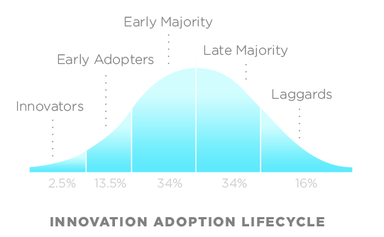
“The purpose of business is to create and keep a customer.” – Peter Drucker
Owners of small businesses seem to struggle with this fact. They think it matters what they make, that the quality is important, and that the details of production matter. Ultimately, none of it matters. The only thing that matters is the customer.
Quality was never an issue
Gary Dahl is famous for his creation, the Pet Rock; it made him a millionaire. Was there anything special about the rock? Not really. It was a Mexican beach stone that Gary bought in bulk. It came in a cleverly packaged cardboard box and did what rocks do – nothing. Gary “estimated he was selling up to 10,000 pet rocks a day. Ultimately, he would sell between 1.3 and 1.5 million of them within a period of just a few months,” according to Mental Floss.
The rock is not special. It’s not the highest quality rock; it didn’t get five stars on Yelp. The packaging also wasn’t that spectacular. Even in 1975, a colorful cardboard box didn’t win any design awards.
The point here is the customer wanted a pet rock. Or, more importantly, they wanted what the rock represented. The rock satisfied a need in the mind of the consumer. That is how you scale a business.
The customer is always right
This is wrong, and it’s okay to say it. The customer is not always right, but they are always the customer. Many business owners forget this fact. Your business needs revenue to exist and to get revenue, you need customers. Many of your customers are probably people you will not like or understand. That’s OK.
Here’s the thing: you don’t need to like your customers and you don’t need to relate to them. The modern notion of customer service is that you need to pamper your customers like they are at a day spa. I make the argument that this is false. Your customers need you to solve a problem, and they will pay you to solve that problem. If you solve it better, or in more unique ways than the shop down the street, you’ll get more customers with more problems. More customers with more problems to solve will bring you more revenue. Rinse, lather, and repeat.
Scaling complexity
Running a business is about never-ending complexity. The problems you solve tomorrow will be more complicated than the problems you are solving today. As your business grows, so does the complexity of the problems you need to solve.
Your first customers will have simple needs because they are willing to take a chance on you. They may be friends and family, locals, or lucky people that found your website. As your brand expands and your business gains more reach, your customer base will also change, and their needs will evolve as well.
The famous adoption curve (below) applies to products as well as to companies. The great majority of your lifetime customers in business will not find you until much later and your late majority and laggard customers will come with a different set of expectations than your early adopters. You can expect those expectations to be higher than, and different from, your current customer base.

Starting out
Many artists, creators, and producers start a business because they think what they make is special, new, or innovative. They are probably right. However, without a customer their new and innovative product is useless. Business is about creating and keeping a customer. That means giving the customer what they want, not what you want. If your target customer wants the best quality, best service, and best prices, you’re in luck. You’re giving them what they want, and they will reward you with their business.
Start small
If you are just starting out as a business, thinking about converting your hobby or side hustle to full time, or you have an established business that has hit a rut: start small. Find a customer, figure out what they want, and give it to them. You don’t need much profit; breaking even will work too. Take small steps and grow over time. Give one customer what they want, ask them to refer others like them. Then give two customers what they want — then four, eight, 16 and so on.
Your success in business will be determined by how well you can understand your customers and provide the kind of value they want because growing your business is what you want.



